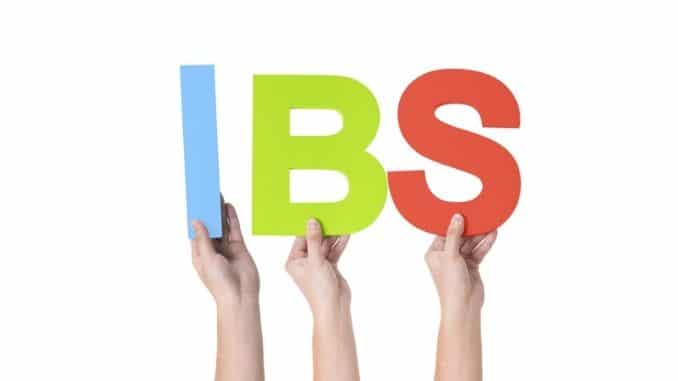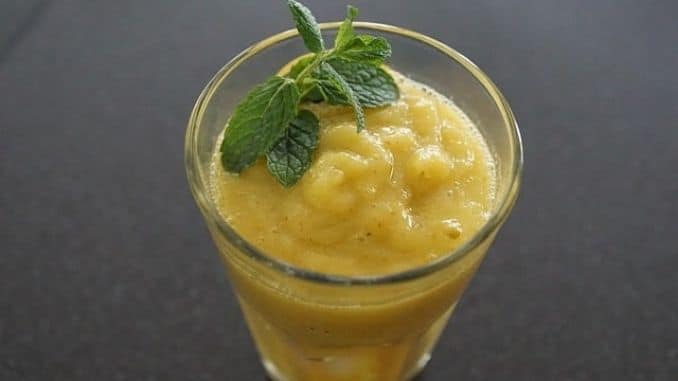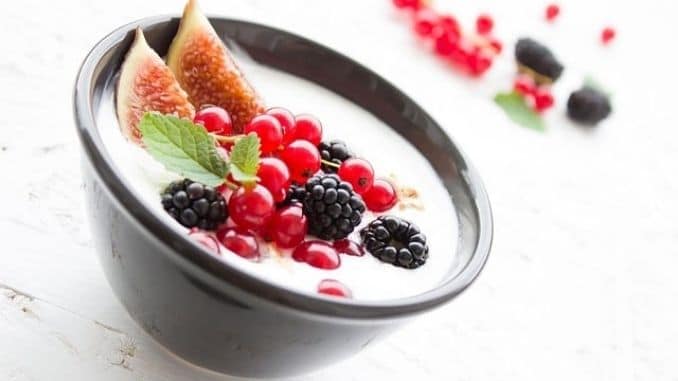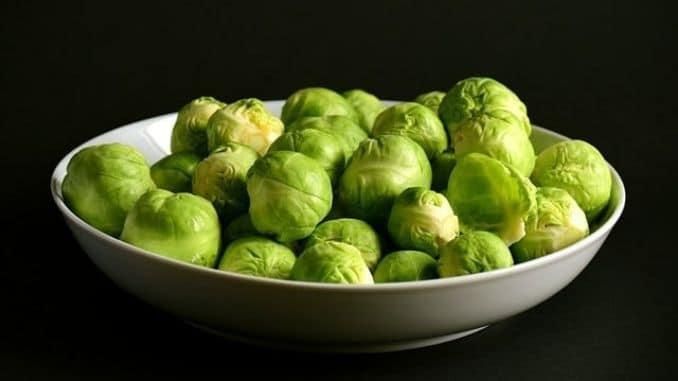
If you suffer from irritable bowel syndrome (IBS), Crohn’s disease or ulcerative colitis, you know how much these types of digestive diseases can interfere with your daily life.
“I have so many things to do,” says Adrianna, “but Crohn’s keeps getting in the way. I hate that it’s so unpredictable. It just appears out of nowhere.”
“Crohn’s is ruining my life,” says Joanne. “The last time I went to the grocery store, I had to go to the restroom three times just while I was there.”
The Crohn’s & Colitis Foundation of America states that about 1.6 million Americans currently have inflammatory bowel disease (IBD) like Crohn’s or colitis, which is an increase of about 200,000 higher the numbers reported in 2011. As many as 70,000 new cases are diagnosed each year.
As for IBS ― not as serious as IBD, but still problematic ― it is the most common disorder diagnosed by gastroenterologists and accounts for up to 12 percent of total visits to primary care providers.
Unfortunately, there is no cure for these disorders. There are medications that can help, but most patients also turn to diet and lifestyle changes to help control symptoms and lengthen the time between flare-ups.
Dietary Changes That Can Improve Quality of Life for Those With IBS and IBD
Whether you have IBS or IBD, changing your diet can help. A 2017 study review suggested that a plant-based diet with increased consumption of fruits and vegetables and less red meat intake may help remission periods last longer.
Whether the typical Western diet contributes to the development of these disorders is still unclear, but there has been some research suggesting that may be the case. Studies on immigrants who move from countries with a low incidence of IBD to countries with higher incidences of the disease show an increased risk of developing IBD, particularly in the first generation of children.
Why would this happen? Scientists think the increased intake of refined sugar and fatty fast foods with lower intakes of fruits, vegetables, and fiber — along with the fact that much of the food supply is processed, stored and transported great distances — could increase inflammation. It may also alter the balance of good to bad bacteria in the gut, promoting a low-grade chronic inflammation. Some research has found too, that people with a pro-inflammatory diet have an increased risk of developing colitis.
These findings suggest that eating more anti-inflammatory foods, such as plant-based foods, while reducing intake of pro-inflammatory foods like fried and processed foods, could potentially reduce the risk of developing IBS and IBD in the first place and may also help ease symptoms after diagnosis.
Scientists decided to test certain dietary changes in patients with IBS and IBD. They found that some of them help to either improve symptoms or maintain remission. There have been some conflicting findings as to what works and what doesn’t but, according to the best evidence we have so far, we have some recommendations.
Generally Dietary Recommendations for Those With IBS and IBD
Below are some general recommendations about foods to avoid and foods to enjoy more often.
Eat less or avoid completely:
- Unhealthy fats: Fast food, greasy food, fried food, red meat and other forms of unhealthy fats have been found to contribute to intestinal inflammation. Choose healthy fats instead like those in salmon and olive oil and reduce your intake of the unhealthy types.
- Refined sugars: The Western diet includes sugar in just about everything, including yogurt, soups, bread, condiments and more. Try to cut way back on the added sugars you consume.
- Artificial sweeteners: These can disrupt the natural microbiome in the gut and some — like sorbitol — can cause or increase the chance for diarrhea. Some studies have also indicated that they can intensify gut inflammation.
- Carbonated drinks: These typically cause gas and can make symptoms worse.
- Nuts, seeds, beans, and kernels: All of these are nutritious foods, but if you’re going through a Crohn’s flare-up, and you have strictures, you may need to avoid them for a while until you feel better.
- Raw vegetables: They can cause gas and other uncomfortable symptoms.
- Alcohol: Even one drink can trigger an attack or a flare as alcohol is an irritant on the bowel.
- Caffeine: Caffeine stimulates muscles in the digestive tract and may cause symptoms if you’re sensitive to it.
- Spices: Some people with IBS and IBD have a hard time tolerating spicy foods. Watch out for hot sauce, chili powder, hot peppers, garlic, and other spices.
Eat more:
- Omega-3 fatty acids: Omega-3 fatty acids are naturally anti-inflammatory, so getting more of these in your diet could help reduce symptoms. They’re found in salmon, mackerel, herring, sardines, olive oil, and walnuts.
- Eat smaller portions. When you consume a large meal, you tax your digestive system. Eating smaller meals throughout the day is easier to manage.
- Water: It helps to flush out waste and keep your digestive system moving more smoothly.
- Prebiotics: These are unique nutrients that help promote the growth of healthy bacteria (probiotics) in your gut. You can take them in supplement form or try to eat more foods like bananas, honey, oats and asparagus.
- Probiotics: These are the healthy bacteria you need in your gut and the ones that are often wiped out by the symptoms of IBD. Taking a probiotic supplement may help improve your symptoms and may also improve gut health over the long-term. You can also consume more probiotic-rich foods like yogurt, kefir, kimchi, sauerkraut, kombucha, tempeh, and miso.
- Supplements: People with IBS may not need supplements, but people with IBD are often at risk for nutrient deficiencies. Talk to your doctor or dietician about the supplements that may be best for you. Typically a multivitamin is a good idea, and you may also need to take vitamins B12 and D. If you’re experiencing diarrhea and vomiting, you’re losing magnesium and potassium, so you may need to supplement with these as well for a while. It’s also a good idea to take an omega-3 supplement (fish oil) for the anti-inflammatory benefits.
- Slippery elm: This herbal remedy helps to coat and soothe the intestinal tract, which may help ease symptoms. It also has powerful antioxidant effects. Marshmallow root has similar effects and works well in hot tea.
You may wonder, what about fiber? Often when a flare-up appears, it can be difficult and painful to eat fiber-rich foods. Fiber is important for normal digestion and going without it for too long can make the disease worse as it can disrupt the normal microbiome in the gut, encouraging more inflammation.
If you have to go easy on fiber for a while, do that to reduce symptoms, but then ease your way back into it by cooking your vegetables, making a puree or adding them into a smoothie or other drink to make them easier to tolerate.
Certain Diets That May Help Those With IBS or IBD
In addition to the general recommendations above, there are also certain diets that have been studied in patients with IBS and IBD. We need more studies to be sure how these may affect large populations of people. However, under your doctor’s supervision, you can try those that you think you may be able to incorporate into your life.
1. The Specific Carbohydrate Diet
This diet became known as a popular treatment for IBD a few years ago after biochemist Elaine Gottschall wrote a book entitled “Breaking the Vicious Cycle.” She claims she cured her daughter’s ulcerative colitis using the diet.
The idea is that certain carbohydrates pass undigested into the colon, resulting in bacterial and yeast overgrowth that may lead to intestinal injury. So, the diet avoids so-called “simple” carbs and allows only more complex carbs. It can be a tough diet to follow, however, so talk to your doctor and be careful to manage your nutrition if you give it a go.
Avoid:
- All cereal grains
- Potatoes, yams, and corn
- Processed, canned or smoked meats
- Most legumes (like chickpeas and soybeans)
- All regular dairy foods
- Instant tea, instant coffee, soybean milk and beer
- Chocolate, margarine and corn syrup
Enjoy:
- All fruits but canned or frozen ones
- All vegetables but canned or frozen ones, except those listed above to avoid
- Lentils and split peas
- Lactose-free dairy
- Wine
- Saccharin, honey, and butter
2. The Low-fermentable Oligosaccharide, Disaccharide, Monosaccharide and Polyol Diet
This diet is all about avoiding “FODMAPs,” which are highly fermentable but poorly absorbed carbohydrates and polyols (sugar alcohols). Researchers discovered in 2005 that the rapid fermentation of these foods in the gut led to increased intestinal permeability, which increases the risk of IBD in those who are genetically susceptible to it. Many people who suffer from IBS have been found to have difficulty with FODMAPs.
Studies have also shown that those with IBS have worse symptoms when consuming a high-FODMAP diet. The idea here is to eliminate foods high in FODMAPs for a period of about six to eight weeks, followed by a return to a normal diet by gradual reintroduction of individual foods. The diet has also been found to be effective in those with IBD as long as they follow it exactly.
Avoid:
- Wheat, barley, and rye
- Apples, applesauce, apricots, blackberries, canned fruit, dates, dried fruit, grapefruit, mangoes, nectarines, pears, peaches, plums, prunes and watermelon
- Artichokes, asparagus, avocados, beetroot, cauliflower, cabbage, garlic, leeks, mushrooms, onions, peas, shallots, snow peas, sweet corn, and sweet potato
- Breaded meat
- Beans, cashews, chickpeas, lentils, pistachios, and soybeans
- Cow’s milk, goat’s milk, sheep’s milk, condensed and evaporated milk, buttermilk, soy milk (from soybeans), soft cheeses and cream
- Coconut water, green tea, rum, soft drinks, sports drinks, and white tea
- Milk chocolate, sweeteners ending in “-ol,” honey and high fructose corn syrup
Enjoy:
- Gluten-free foods, oats, rice, and quinoa
- Bananas, blueberries, cantaloupe, clementines, grapes, kiwi, lemons, limes, melons, oranges, passion fruit, pineapple, raspberries, and strawberries
- Alfalfa, bean sprouts, bell peppers, bok choy, broccoli, Brussels sprouts, carrots, corn, cucumbers, eggplant, green beans, kale, lettuce, potatoes, spinach, spring onions, squash, tomatoes, turnips, and zucchini
- All proteins (except breaded meat or charred meat)
- Almonds, chia seeds, nut butter, macadamia nuts, peanuts, pecans, pumpkin seeds, and walnuts
- Lactose-free yogurt and milk, almond milk, coconut milk, rice milk, soy milk (from soy protein), hard cheeses and low-lactose cheese
- Fruit and vegetable juice made with allowed foods, wine, vodka and gin
- Brown sugar, dark chocolate, maple syrup, golden syrup and stevia
3. Anti-inflammatory Diet
Studies have found promising results with an anti-inflammatory diet that is based on the theory that certain foods can exacerbate inflammation in the gut. This has been used mainly in those with IBD and involves eliminating certain carbohydrates and particular starches thought to stimulate the growth of inflammatory bacteria in the digestive tract.
Avoid:
- Gluten-based grains
- Fruits with seeds
- Cruciferous vegetables
- High-fat meats
- Whole seeds and nuts
- Most dairy
Enjoy:
- Oats
- Most fruits if pureed and seeds strained out
- Most vegetables with a soft texture that are cooked well
- All fish, lean meats, omega-3-rich eggs (with focus on increasing intake of omega-3 fatty acids)
- Flax meal and chia seed as tolerated, pureed nut and bean
- Lactose-free limited aged cheeses, fresh cultured yogurt, and kefir
- Honey and stevia
Another part of this diet is that as symptoms improve, patients can try adding whole foods back in (like cruciferous vegetables) in small amounts to see how they’re tolerated.
Watch Your Progress Carefully
Whatever dietary changes you try, make sure you work with a dietician or your doctor, particularly if you have the more serious IBD. Diets can result in malnutrition if you’re not careful, and a trained professional can help determine when you can add certain foods back in. Regardless of what you try, keep a diary of what you eat and what symptoms you experience, as it can help reveal certain sensitivities you may have.
For more help eating to improve digestion, check out our Digestive Health Cookbook, here!







